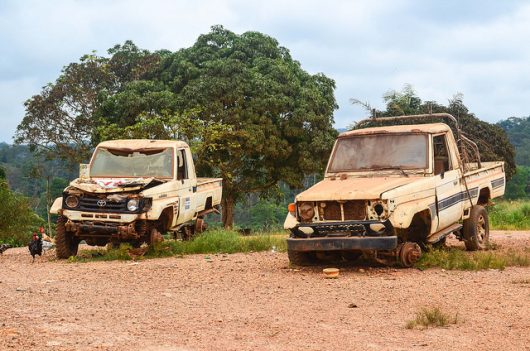Why Is Gabon Poor? The Results of Unchecked Inequality
 Why is Gabon poor? This is a question that is, unfortunately, stereotypically asked about any African country. This is particularly the case with Gabon, due to the fact it is not historically one of Africa’s most developed nations.
Why is Gabon poor? This is a question that is, unfortunately, stereotypically asked about any African country. This is particularly the case with Gabon, due to the fact it is not historically one of Africa’s most developed nations.
What is even more unfortunate is that Gabon fits this stereotype very well, as it is one of the poorer countries in the world. According to the World Bank, the country’s poverty headcount was 32.7 percent as of 2005.
This is interesting because, on a larger international scale, Gabon’s economy is doing relatively well. According to the CIA World Factbook, Gabon’s GDP growth has been significant over the last few years, with 4.4 percent growth in 2014, 3.9 percent in 2015 and 2.3 percent in 2016. While there has been a decreasing trend in these figures, they are still substantial. Gabon’s GDP per capita is worth noting, too. Listed at $19,100 as of 2016, the country is ranked 88th in the world.
So, if Gabon’s economy is doing reasonably well on the international stage, why is Gabon poor? The answer, it turns out, is centered around income inequality.
While Gabon’s national income has greatly benefitted from oil exports, its workforce has not seen these returns. As recently as 2015, Gabon’s unemployment rate was 28 percent, one of the highest in the world.
This means that, simultaneously, Gabon’s national income has been rising quickly while almost a third of its workforce remains unemployed and therefore unable to reap those benefits. The result is rising inequality that has devastated the country. As of 2005, the lowest 10 percent of Gabon’s population held only 2.5 percent of household income, while the highest 10 percent held 15 times that amount at 32.7 percent of household income.
Gabon has thus been left in an awful situation. With a third of its population unemployed and a third of its national income going to the top 10 percent of its population, very little funds are left over to bring the country’s poor out of poverty and into the workforce. As these figures worsen, the hole Gabon has dug continues to get deeper.
If Gabon wants its economic growth to be sustainable, the country must improve its fiscal management. By allocating more of its national income to the poor and by prioritizing job growth to lower its unemployment rate, Gabon could see real gains that last beyond the short term and set the country up as one of the region’s major economies.
So, why is Gabon poor? Systematic inequality has ravaged the country, but there is opportunity for change. As the country industrializes and continues to see economic gains, the international community must continue to observe the country’s financial management.
– John Mirandette
Photo: Flickr
